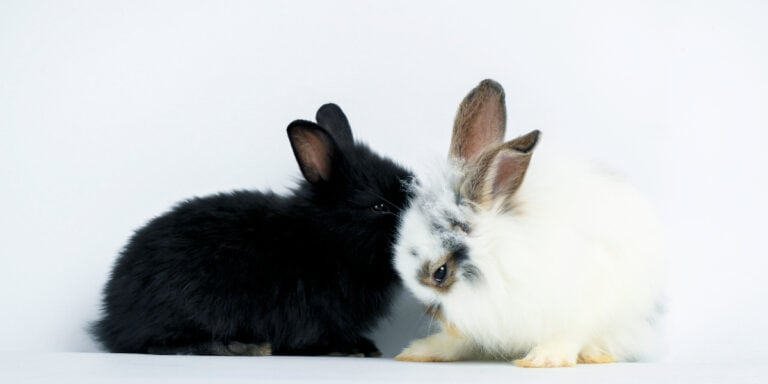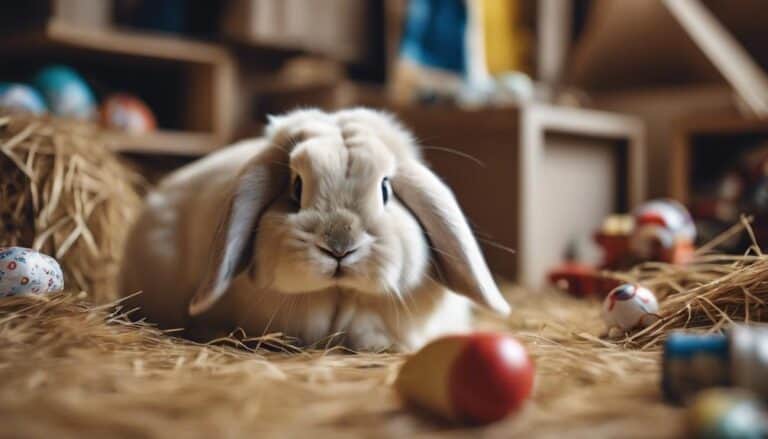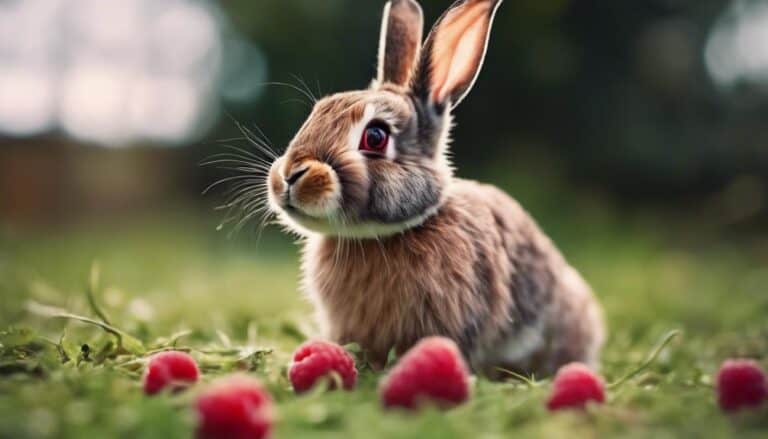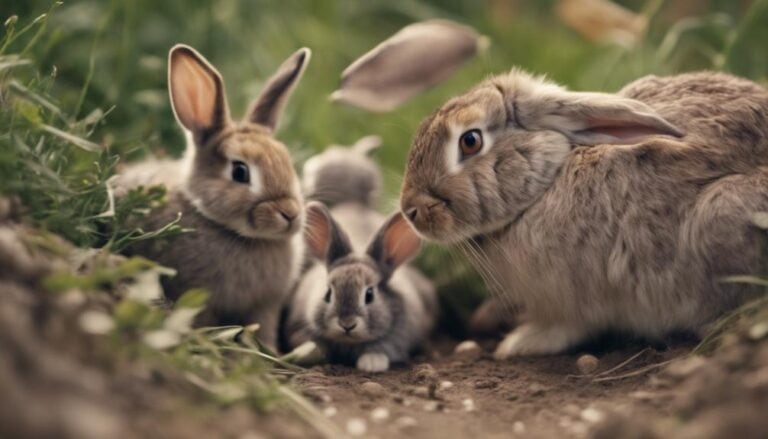If you're pondering whether bunnies can munch on cabbage, the answer might surprise you. While bunnies can indeed enjoy cabbage as part of their diet, there are some important considerations to keep in mind.
Just like any other food introduction, the process requires caution and gradual adjustments. But what are the specific benefits and risks associated with feeding cabbage to bunnies, and how can you guarantee a well-rounded diet for your fluffy companion?
Let's explore the dos and don'ts of including cabbage in your bunny's meals.
Contents
- 1 Key Takeaways
- 2 Nutritional Benefits of Cabbage for Rabbits
- 3 Risks of Feeding Cabbage to Bunnies
- 4 Best Practices for Offering Cabbage to Rabbits
- 5 Recommended Cabbage Varieties for Rabbits
- 6 Precautions When Feeding Cabbage to Bunnies
- 7 Incorporating Cabbage in Rabbit Diets
- 8 Is it Safe for Bunnies to Eat Peanut Butter if They Can Eat Cabbage?
- 9 Frequently Asked Questions
- 10 Conclusion
Key Takeaways
- Cabbage offers essential nutrients but should be fed in moderation to prevent digestive issues.
- Monitor rabbits for gas, bloating, and diarrhea when introducing cabbage.
- Rotate cabbage with other leafy greens for a diverse and balanced diet.
- Carefully control cabbage serving size and frequency to ensure rabbits' digestive health.
Nutritional Benefits of Cabbage for Rabbits
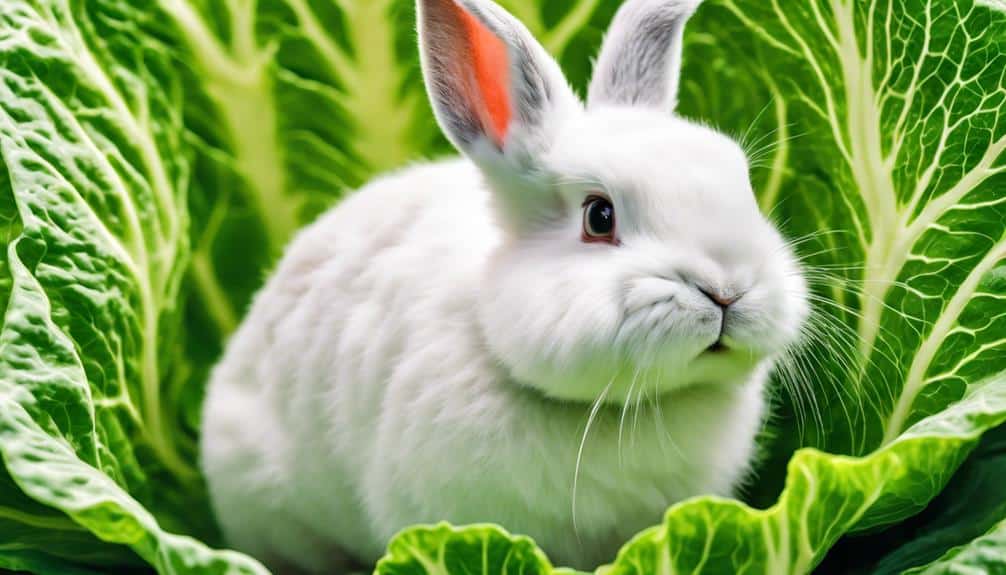
Cabbage offers rabbits a wealth of essential nutrients important for their overall health and well-being, making it a valuable addition to their diet. Rabbits can benefit from the various vitamins found in cabbage, such as Vitamin A for vision health, Vitamin C for a vital immune system, and Vitamin K for blood clotting. Additionally, the dietary fiber present in cabbage supports healthy digestion in rabbits, while its high water content helps keep them hydrated.
Including cabbage in moderation as part of a rabbit's diet can provide them with essential nutrients like Vitamin B6, important for overall body function, calcium, which promotes healthy teeth, and potassium, necessary for a well-functioning nervous system. Savoy cabbage, a type known for its crinkled leaves, offers even more nutritional benefits compared to other varieties of cabbage, making it an excellent choice to enhance a rabbit's diet. Remember, a balanced diet incorporating leafy greens like cabbage can contribute significantly to keeping your rabbits healthy and thriving.
Risks of Feeding Cabbage to Bunnies
Feeding cabbage to your bunnies can potentially cause digestive issues such as gas and bloating. To minimize risks, it is crucial to moderate the amount of cabbage you offer your rabbits.
Keep an eye on your rabbits for any signs of discomfort or digestive upset when introducing cabbage into their diet.
Digestive Issues in Bunnies
Introducing cabbage to a bunny's diet can pose potential risks for their digestive health, including the development of gas, bloating, and diarrhea.
- Feeding cabbage to rabbits can lead to digestive issues like gas and bloating.
- Excessive cabbage consumption may result in diarrhea in bunnies.
- It's important to introduce cabbage gradually to monitor bunnies for any signs of digestive discomfort.
It is important to remember that while leafy vegetables are generally good for rabbits, including cabbage, moderation is key. A balanced diet is vital to a rabbit's well-being. If your bunny experiences gas and digestive problems, removing cabbage from their diet until symptoms disappear can help alleviate their discomfort.
Gas and Bloating Risks
To minimize the risk of gas and bloating in bunnies, it's important to monitor their cabbage intake and incorporate low-calcium vegetables into their diet. Rabbits eat cabbage for its high fiber content, but excessive consumption can lead to digestive discomfort, flatulence, and bloating risks, especially in bunnies with sensitive stomachs.
Offering cabbage in moderation and pairing it with low-calcium vegetables can help reduce the likelihood of these issues. It's essential to keep a close eye on your bunnies for any signs of gas, bloating, or digestive problems when introducing cabbage into their diet.
Cabbage Moderation Advice
To maintain the well-being of your bunny, closely monitoring their cabbage consumption is essential in preventing potential gas and bloating risks. When incorporating cabbage into your rabbit's diet, follow these guidelines:
- Introduce cabbage slowly: Start with small amounts and observe how your bunny reacts before increasing the quantity.
- Offer cabbage in moderation: While cabbage is high in fiber and essential vitamins, overfeeding can lead to digestive upset.
- Watch for signs of digestive upset: If your rabbit shows symptoms like bloating or diarrhea, reduce or eliminate cabbage from their diet.
Best Practices for Offering Cabbage to Rabbits
When offering cabbage to your rabbit, remember to control the serving size to prevent digestive issues.
Make sure you wash the cabbage thoroughly to eliminate any harmful substances that might harm your pet.
Keep a close eye on your bunny's digestion for any signs of discomfort or bloating after introducing cabbage into their diet.
Cabbage Serving Size
Offering rabbits a small serving of cabbage, approximately the size of their head, is recommended to prevent overeating and maintain a balanced diet for these furry pets.
- Limit Intake: Offer cabbage to rabbits 1-2 times per week to guarantee a diverse diet.
- Monitor Digestion: Keep an eye on your rabbits for any digestive issues or bloating after introducing cabbage.
- Rotate Greens: Alternate cabbage with other leafy greens to provide a varied and balanced diet for peak health.
Preparing Cabbage Safely
For guaranteeing the safety and health of your rabbits, it's crucial to properly prepare cabbage by washing it thoroughly to remove any pesticides or contaminants before feeding it to your furry companions.
Cut the cabbage into small, bite-sized pieces to avoid any choking hazards for your rabbits.
When introducing cabbage into your rabbit's diet, do so gradually and in small amounts to monitor their tolerance and digestive health.
It's vital to rotate cabbage with other leafy greens to ensure a balanced diet and prevent overconsumption.
Remember to remove any uneaten cabbage promptly from your rabbit's enclosure to avoid spoilage and potential health risks.
Monitoring Bunny's Digestion
To guarantee your rabbit's well-being when adding cabbage to its diet, closely monitor its digestion for any signs of discomfort or irregularities.
- Start with offering small amounts of red cabbage to assess its assurance level.
- Gradually increase the portion of cabbage to assure it's well-received by your bunny.
- If you notice any digestive discomfort such as upset stomach or diarrhea, stop feeding cabbage immediately and consult a veterinarian for further guidance.
Remember to keep a record of how frequently you introduce cabbage to your bunny to assure it's not causing any digestive issues. Observing your rabbit's stool consistency can also help in determining if the cabbage is being digested properly.
Recommended Cabbage Varieties for Rabbits
When selecting cabbage varieties for your rabbit's diet, prioritize dark, leafy options like savoy, spring greens, and cavolo nero for their superior nutritional content. These varieties offer higher levels of essential vitamins and minerals compared to lighter cabbage types.
Bok choy, purple cabbage, and red cabbage are also suitable choices for your bunny's diet, providing a mix of flavors and nutrients. While white cabbage can be included occasionally, it shouldn't be the primary cabbage variety due to its lower nutritional value.
Both the leaves and stalks of cabbage can be fed to rabbits, as long as they're raw and thoroughly washed to assure they're free from pesticides or chemicals. By offering a variety of cabbage types, you can enrich your rabbit's diet with a diverse range of nutrients, promoting their overall health and well-being.
Precautions When Feeding Cabbage to Bunnies
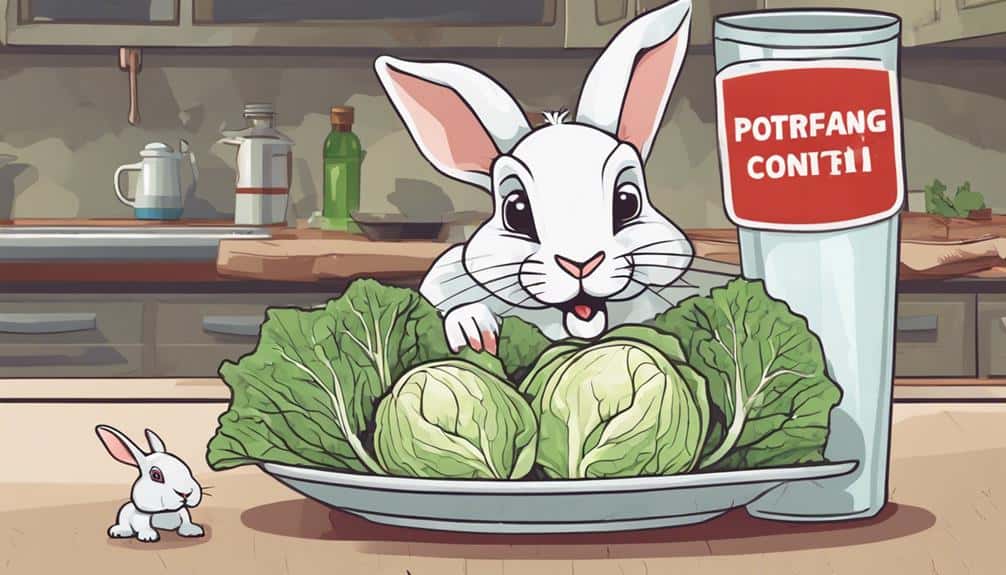
As you introduce cabbage into your rabbit's diet, be vigilant for any signs of diarrhea or bloating as these could indicate digestive issues. When feeding cabbage to your bunnies, it's important to take certain precautions to guarantee their well-being:
- Monitor for Digestive Issues: Keep an eye on your rabbits for any digestive problems like diarrhea or bloating, which may signal that cabbage isn't agreeing with them.
- Introduce Gradually: If you notice any digestive issues, reintroduce cabbage slowly and in small amounts to allow your bunnies' digestive systems to adjust.
- Feed in Moderation: Cabbage should be given in moderation alongside other essential foods like hay and leafy greens to provide a balanced diet for your rabbits.
Incorporating Cabbage in Rabbit Diets
Ensuring a balanced and nutritious diet for your bunnies involves incorporating leafy greens like cabbage to provide essential vitamins and minerals. When feeding rabbits, it's important to introduce cabbage gradually to monitor their tolerance and digestive health. Dark, leafy cabbage varieties such as savoy and spring greens are recommended for their high nutritional content. These cabbages are rich in essential nutrients like Vitamin C and minerals such as potassium, which are beneficial for your rabbit's overall health. To maintain a balanced diet, rotate cabbage with a variety of other leafy greens to offer your rabbit a diverse range of nutrients. By including cabbage in your rabbit's diet in moderation and alongside other vegetables, you can vital they receive the necessary vitamins and minerals for their well-being.
| Nutrient Content | Benefits |
|---|---|
| High in Vitamin C | Supports immune system health |
| Rich in Potassium | Helps maintain proper heart function |
| Provides Essential Nutrients | Aids in overall health and vitality |
Is it Safe for Bunnies to Eat Peanut Butter if They Can Eat Cabbage?
While bunnies can safely eat cabbage in moderation, it is not safe for them to consume peanut butter. Peanut butter can be difficult for bunnies to digest and may cause stomach upset. It’s best to avoid feeding bunnies eating peanut butter and stick to a diet of hay, fresh vegetables, and limited fruits.
Frequently Asked Questions
Is Cabbage OK for Bunnies?
Cabbage is safe for bunnies in moderation. Like the spinach debate or carrot controversy, introduce it slowly. Dark, leafy varieties like savoy are best. Wash it properly. Cabbage provides essential vitamins like C and K for bunnies' health.
What Vegetables Can Rabbits Eat Daily?
You can provide your bunnies with a daily diet rich in essential nutrients by offering a variety of vegetables such as carrot tops, bell peppers, radish greens, parsley flakes, spinach leaves, celery sticks, broccoli florets, kale chips, dandelion greens, and mint leaves.
Is Sweetheart Cabbage OK for Rabbits?
Sweetheart cabbage offers a variety of benefits for your bunny's diet. Rich in essential nutrients like vitamins A, C, and K, it's a secure and healthy choice. Assure moderation and freshness to avoid any digestive issues.
What Do Rabbits Love to Eat the Most?
Rabbits love a diverse diet. They enjoy leafy greens like kale, dandelion greens, and parsley treats. Fresh herbs like basil and mint add flavor. Carrot treats, bell peppers, and fruit snacks should be occasional. Timothy hay is important for their hay diet.
Conclusion
To sum up, while cabbage can be a nutritious addition to a rabbit's diet, it's important to introduce it slowly and in moderation to prevent digestive issues. By monitoring your bunny's reaction to cabbage and consulting a veterinarian if needed, you can guarantee a safe and healthy diet tailored to their individual needs.
Remember to rotate cabbage with other leafy greens for a balanced diet, and always wash the leaves thoroughly before feeding to your furry friend.


